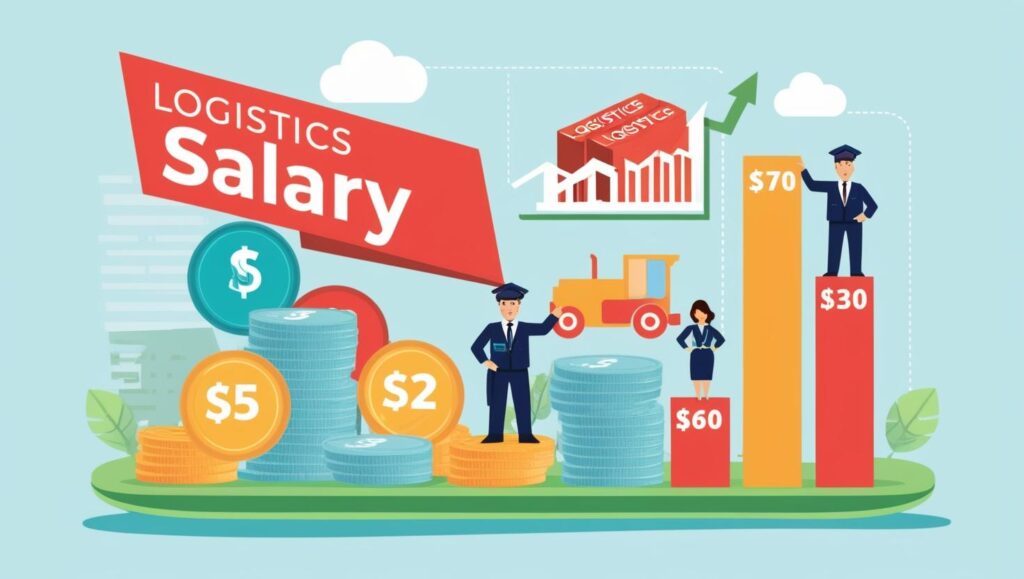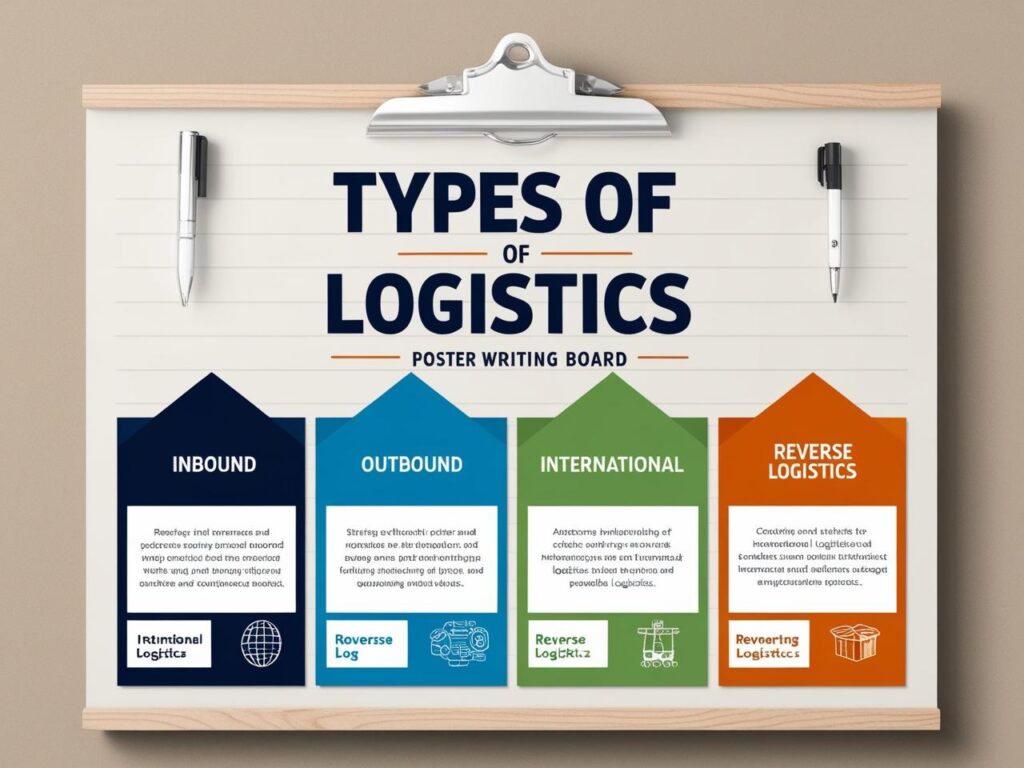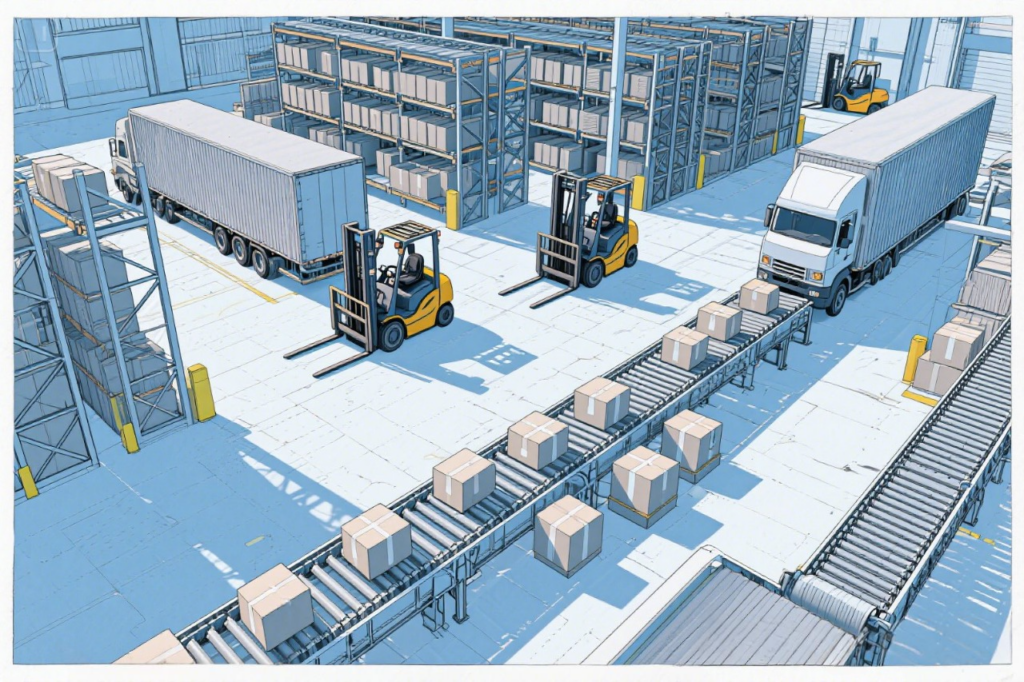
Logistics is an essential part of every business, especially those in manufacturing, e-commerce, and distribution. In the world of logistics, there are different types of logistics that have specific functions, all of which play a role in ensuring that goods and information move from point A to point B efficiently and in a timely manner. Some common types of logistics are inbound logistics, outbound logistics, distribution logistics, and international logistics. This article will discuss in detail these types of logistics, as well as how each of these types of logistics contributes and plays a role in the supply chain process.
Inbound Logistics
Inbound logistics refers to managing the flow of goods and materials coming into the company, from suppliers to the company’s factories or warehouses. The main goal of this type of logistics is to ensure that the raw materials or goods required for production are available on time and in the appropriate quantities. This type of logistics includes various activities, such as procurement, receiving, and storage of materials.
1. Processes involved in inbound logistics
– Procurement of Goods
This process involves selecting and procuring raw materials from suppliers. Efficient procurement management is essential so that the company does not lack raw materials that can disrupt production.
– Goods Receiving and Inspection
Once the goods arrive at the warehouse or factory, they will be inspected to ensure the quality and quantity match the order.
– Goods Storage
Upon receipt and inspection, the goods will be stored in a warehouse or storage area that has been set up.
2. Example of inbound logistics implementation
Manufacturing companies like Toyota or Samsung rely on this types of inbound logistics to organize the procurement and delivery of components needed to assemble the final product. This process is crucial because the smooth running of production depends heavily on the timely arrival of raw materials.
Outbound Logistics
Outbound logistics is the opposite of inbound logistics. This type of logistics involves managing the delivery of goods from the company to the customer or other distribution point. This includes packaging, shipping arrangements, and selection of the most efficient transportation method. This type of logistics is crucial because it deals directly with the end consumer, so it determines the assessment because it depends on the final result of customer satisfaction.
1. Processes involved in outbound logistics:
– Packaging of Goods
Before shipping, items need to be securely wrapped to prevent damage during shipment.
– Transportation Mode Selection
Companies choose the best shipping method based on the type of goods, distance, and shipping costs. This could involve land, sea, air, or rail transportation.
– Shipping and Distribution
Once everything is prepared, the goods are shipped to consumers or to further distribution locations, such as retailers or distributors.
2. Example of outbound logistics implementation
E-commerce giants like Amazon rely heavily on outbound logistics to deliver customer orders efficiently. With sophisticated shipping systems and a variety of transportation options, Amazon can deliver products to customers in a very short time.
Distribution Logistics
Still belonging to outbound logistics, this type of logistics is part of organizing goods to customers or retailers. Distribution logistics involves managing various distribution channels, from the central warehouse to the points of sale or end consumers.
1. Processes involved in distribution logistics
– Storage at Distribution Center
Goods are stored in distribution centers or large warehouses before being shipped to the destination location. These distribution centers serve as the connecting point between the company and the customer.
– Delivery Routing
Delivery routes will vary greatly depending on the options, plans, and conditions on the ground, taking into account traffic conditions, weather, and the speed of the goods to determine the effectiveness of the route.
– Delivery to Retailers or Consumers
The goods are finally delivered to the retailer or end customer using a suitable fleet of vehicles.
2. Example of distribution logistics application
Companies like Coca-Cola use distribution logistics to deliver their products to retailers in various locations. Coca-Cola has an extensive distribution network that allows their products to be available in almost every store around the world.
International Logistics
One of the most important types of logistics is international logistics, which includes managing the flow of goods by involving interstate or intercontinental shipments. In international logistics, there are many factors to consider, such as customs clearance, import tariffs, international regulations, and interstate shipment management.
1. Processes involved in international logistics
– Customs and Regulatory Management
One of the biggest challenges in this types of logistics is complying with different customs rules and regulations in each country. This process involves filling out the necessary paperwork to ensure the goods can cross the border smoothly.
– International Transportation Mode Selection
International shipping usually involves sea, air, or rail transportation. Each types of transportation has its advantages and disadvantages, depending on the type of goods and the destination of the shipment.
– International Shipping and Packing Management
In international shipping, good and safe packaging of goods is essential to prevent damage to the goods during the long journey.
2. Examples of international logistics implementation
Multinational companies like Apple and Nike rely on this types of international logistics to deliver their products around the world. They have to manage the shipment of goods from a factory in one country to a distribution center in another, ensuring the goods arrive safely and on time in the global market.
Reverse Logistics
Reverse logistics refers to the process of managing goods that return to the company, be it due to returns, damaged products, or for recycling. It is an important part of the logistics process. Reverse logistics also places a high priority on sustainability and waste management.
1. Processes involved in reverse logistics:
– Return of Goods
Returns occur for various reasons, such as defective goods, fraud, and other reasons. This process must be managed properly to prevent a decrease in customer satisfaction and prevent losses.
– Recycling
Broken or unsold items can be recycled or repaired for reuse, reducing waste.
2. An example of reverse logistics in action
Electronics companies like Samsung and LG manage reverse logistics to handle the return of faulty products or obsolete electronics for recycling.
Logistics is a vast sector that is integrated into many aspects of business life. From inbound logistics that focuses on procuring raw materials to outbound logistics that organizes deliveries to customers to international logistics that manages global distribution, each types of logistics has its own role to play in ensuring the smooth flow of goods. An understanding of these different types of logistics is essential for those interested in a career in the logistics industry, and the Bachelor of Digital Supply Chain provides the knowledge and skills needed to manage all these aspects of logistics efficiently.
Tags : Types Logistics | S1 Digital Supply Chain | S1 Digital Supply Chain Telkom University | Telkom University



